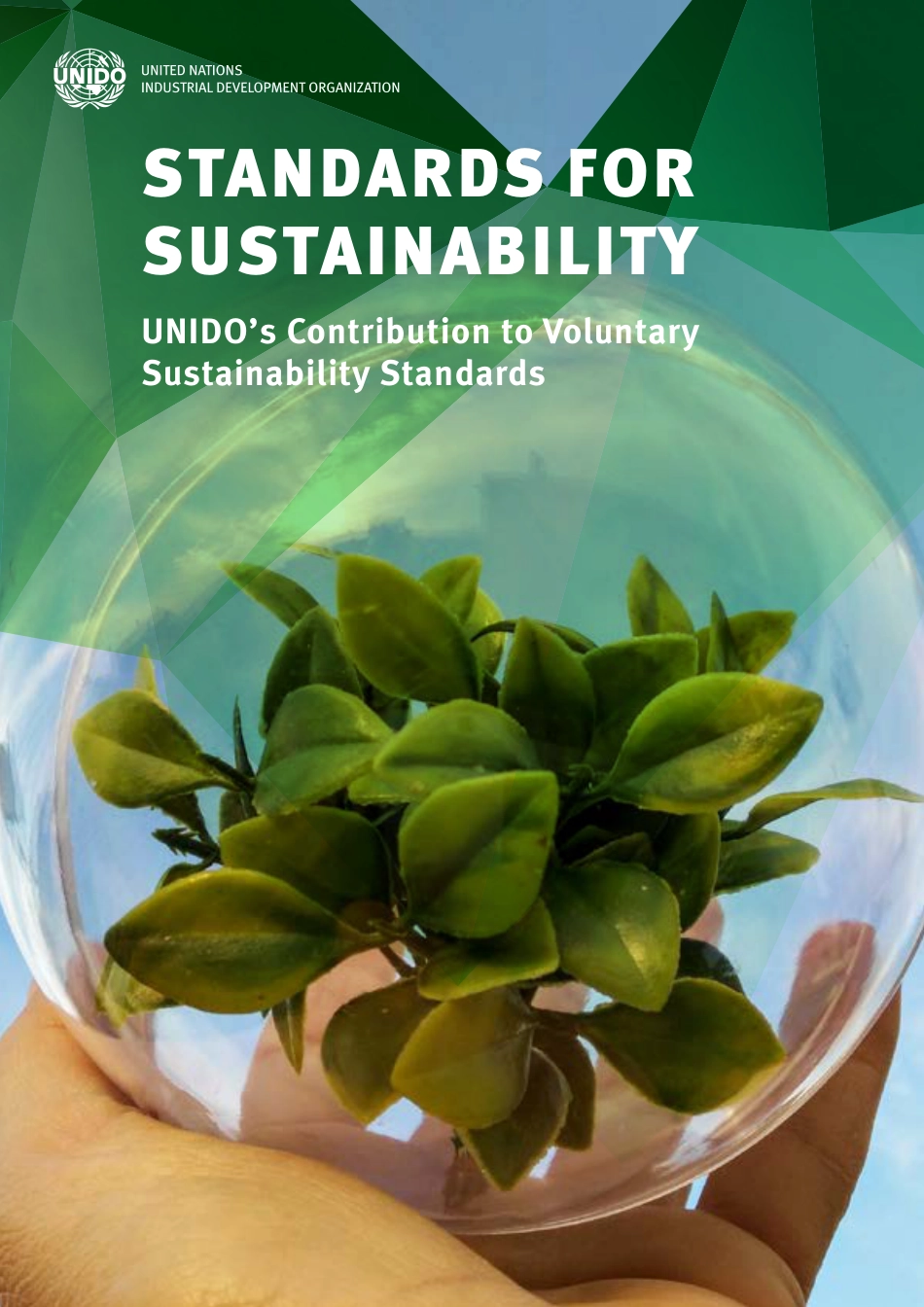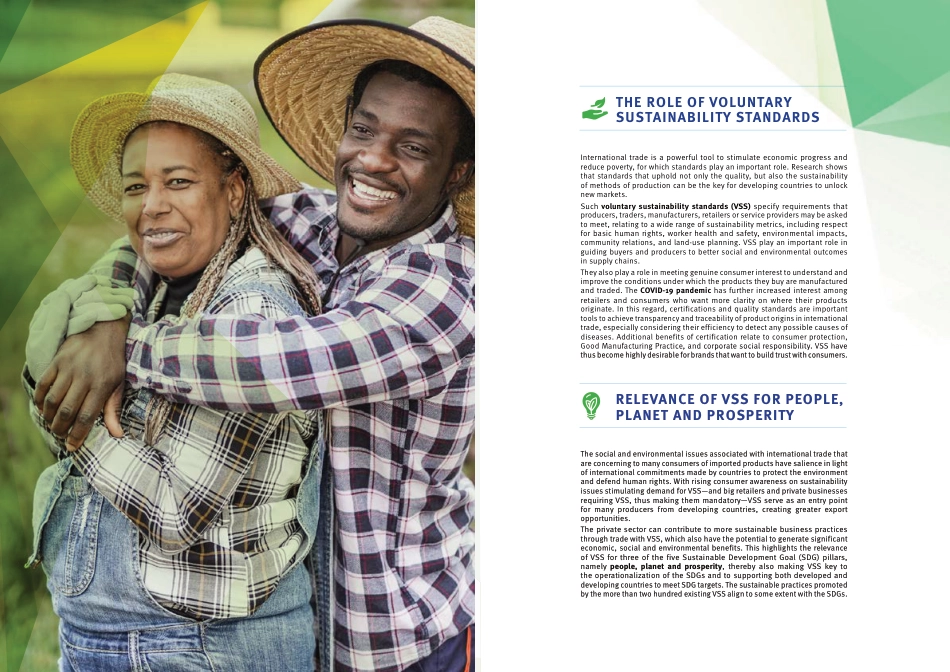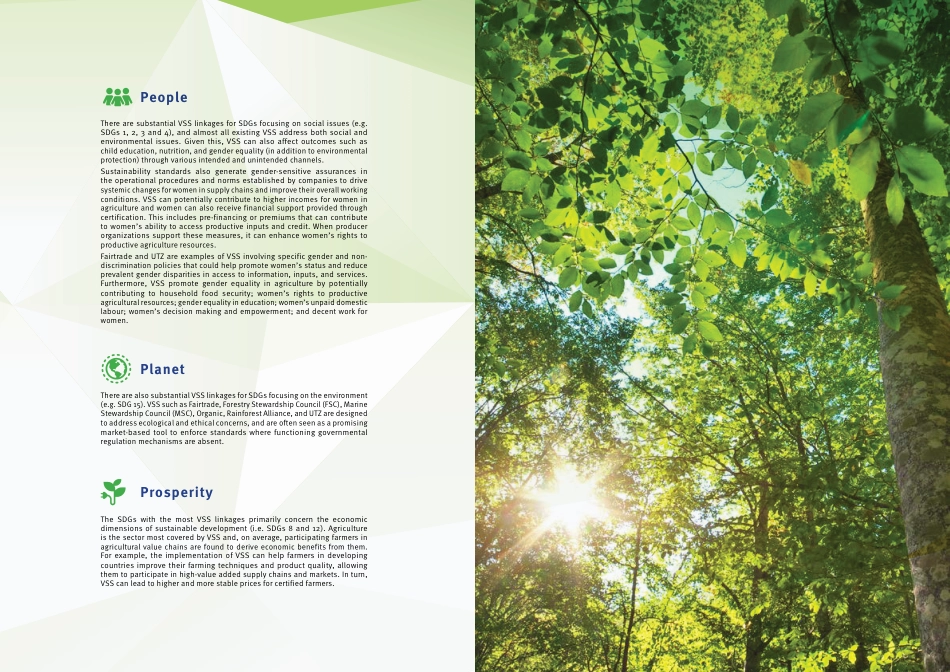STANDARDS FOR SUSTAINABILITYUNIDO’s Contribution to Voluntary Sustainability StandardsInternational trade is a powerful tool to stimulate economic progress and reduce poverty, for which standards play an important role. Research shows that standards that uphold not only the quality, but also the sustainability of methods of production can be the key for developing countries to unlock new markets.Such voluntary sustainability standards (VSS) specify requirements that producers, traders, manufacturers, retailers or service providers may be asked to meet, relating to a wide range of sustainability metrics, including respect for basic human rights, worker health and safety, environmental impacts, community relations, and land-use planning. VSS play an important role in guiding buyers and producers to better social and environmental outcomes in supply chains. They also play a role in meeting genuine consumer interest to understand and improve the conditions under which the products they buy are manufactured and traded. The COVID-19 pandemic has further increased interest among retailers and consumers who want more clarity on where their products originate. In this regard, certifications and quality standards are important tools to achieve transparency and traceability of product origins in international trade, especially considering their efficiency to detect any possible causes of diseases. Additional benefits of certification relate to consumer protection, Good Manufacturing Practice, and corporate social responsibility. VSS have thus become highly desirable for brands that want to build trust with consumers. The social and environmental issues associated with international trade that are concerning to many consumers of import...



